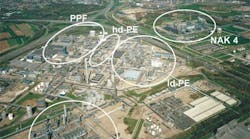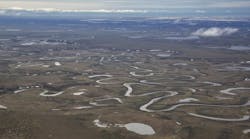The price for dated Brent crude oil has settled around $24-25/bbl, the Organization of Petroleum Exporting Countries is holding back production, and inventories are falling. So why is the North Sea oil industry gloomy?
As far as OPEC is concerned, London's Centre for Global Energy Studies reckons the organization is paralyzed with fear, as ministers dread repeating the mistake of raising output at the wrong time.
But non-OPEC producers are fearful too, particularly in high-cost areas. For example, Shell UK Exploration & Production slated a three-field investment-a rare event in the North Sea of late-but the outlay will be minimal.
OPEC's paralysis
CGES said the price of oil is on fire, with dated Brent surging by 12% in November after a 3% decline in October.
The analyst predicts that continued US and European stock reductions in December will bring refiners' forward stock-cover to 50 days by Jan . 1, which would be 6 days less than at the beginning of 1999 and very near the minimum operating requirements level.
"By causing industry stock-cover to decline below minimum operations level," said CGES, "OPEC is exposing the industry to extreme risk, a foretaste of which was the recent suspension of Iraqi oil exports (OGJ, Dec. 6, 1999, p. 40).
"Even higher prices may also bring external political pressures to bear on OPEC. Already US Energy Sec. Richardson has stated that $27/bbl is too high and that unspecified action would be taken to return prices to lower levels."
CGES advises OPEC to bring prices down to a level at which both buyers and sellers would feel comfortable but fears that OPEC ministers still favor a rollover of the current production cutbacks when they meet in March.
Non-OPEC caution
Shell Expro's decision to spend £50 million ($82.5 million) developing three UK North Sea fields is in marked contrast to its recent slating of an $800 million redevelopment project in Iran (OGJ, Nov. 22, 1999, p. 33).
Non-OPEC operators appear to be holding onto their cash for exploration and development projects in low-cost areas-such as Shell's redevelopment of Soroosh and Nowrooz fields-at the expense of areas like the North Sea.
Shell Expro, operating joint venture of Shell UK Ltd. and Esso Exploration & Production UK Ltd., gave the green light to subsea tiebacks to Curlew, Gannet, and Kingfisher, all made viable by new technology and all expected on stream next year.
Malcolm Brindred, managing director of Shell Expro, said: "The North Sea is a mature oil province, and it is increasingly unlikely that there will be many new big platforms needed in the future. We have no large-platform developments in our current portfolio."
North Sea fabricators have closed several yards recently, and more closures are predicted, giving Brindred's words an extra tinge of sadness: "This does not mean to say that we do not intend to continue to invest in the North Sea.
"The projects that we are announcing are examples of what is more likely to be the way ahead--satellite developments tied back into existing infrastructure. We can't wave a magic wand to produce big orders for fabrication yards."

